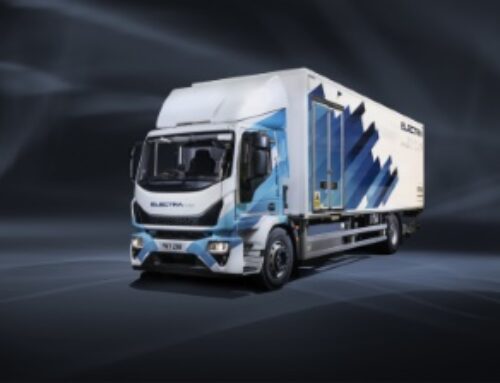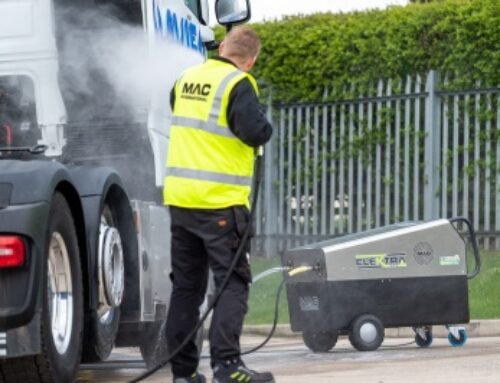Q&A: Shell launches new heavy-duty engine oils
 Shell Rimula has introduced two new products to strengthen its heavy-duty diesel engine oil portfolio, in line with the new American Petroleum Institute (API) CK-4 engine oil specification.
Shell Rimula has introduced two new products to strengthen its heavy-duty diesel engine oil portfolio, in line with the new American Petroleum Institute (API) CK-4 engine oil specification.
Newly reformulated Shell Rimula R4 L and Shell Rimula R5 LE, which are now available in the United Kingdom, are said to provide robust protection for modern engines, in line with the latest OEM requirements.
Dr. Jason Brown, global technology manager for Shell Heavy Duty Engine Oils, explained how the new CK-4 compliant engine oils could help fleet operators in the UK improve fuel economy and engine durability.
Q: What drove the upgrade to the specifications and what is the relevance to fleet operators in the UK?
A: Diesel engine technology has advanced significantly over the past 40 years, driven by tightening emissions legislation and increased emphasis from customers on efficiency, reliability and reduced total cost of ownership.
Today’s engines need a new generation of high-performing diesel engine oils to help deliver improved fuel efficiency without any compromise in engine protection.
With the announcement in 2011 that new emissions legislation would be introduced in the US in 2017, engine manufacturers approached the American Petroleum Institute (API) to request a new category for heavy-duty engine oils, arguing that the existing CJ-4 standard was no longer fit for purpose.
While the category originated in North America, there is a great deal of coordination between engine manufacturers in North America and the rest of the world, meaning that this new standard impacts customers worldwide.
In addition, ACEA (Association des Constructeurs Européens d’Automobiles or The European Automobile Manufacturers’ Association) is set to release an upgraded specification later in 2017 that will align with the API CK-4 standard.
Q: What were the challenges of developing engine oils to meet the new specifications?
A: Shell Lubricants were involved in the development of this new category from the outset, so we have been working on this for five years.
Our Global OEM Technical Manager, Dan Arcy, chaired the New Category Development team – a committee of engine manufacturers, oil marketers, and additive companies who developed the specifications and associated tests.
As part of the process, we invested millions of dollars in engine oil testing and development to understand the CK-4 formulation requirements.
The challenge was to develop engine oils that could replace the current CJ-4 oils without compromising on oil life or wear protection.
To date, our team has performed more than 9,000 tests using proprietary test rigs and external engine test rigs in collaboration with engine manufacturers.
On top of this, we have conducted more than 64 million kilometres (40 million miles) of real-world testing in fleets that use all the major OEM engines and vehicles.
This enables us to demonstrate the performance of our CK-4 engine oils under many different operating conditions and ensure they meet the needs of our customers.
Q: What are the benefits of upgrading to new CK-4 engine oils?
A: In the highly competitive fleet and transportation sectors, companies are under pressure to achieve high standards of reliability and safety, whilst at the same time minimising total operating costs.
The new Shell Rimula CK-4 engine oils are designed to help keep engines clean and running efficiently.
In addition, by providing increased wear protection the engine oils can help improve engine durability and guard against unplanned downtime and unexpected maintenance costs.
Q: Are the new CK-4 engine oils relevant for operators running older equipment?
A: CK-4 oils replace CJ-4 oils, and are backwards compatible to all current vehicles, providing benefits for both newer and older engine technologies. For operators whose fleet contains both newer and older vehicles this helps simplify lubrication procedures.
Almost without exception, regardless of equipment age, the total cost savings delivered by selecting a high-performing engine oil can significantly outweigh any saving made at point of purchase by choosing a cheaper, and potentially inferior product.
We understand the pressures customers are under, but this can be a false economy because it can increase the risk of unplanned breakdowns, higher maintenance costs and loss of production time.
More information about Shell Rimula CK-4 engine oils is available here.











